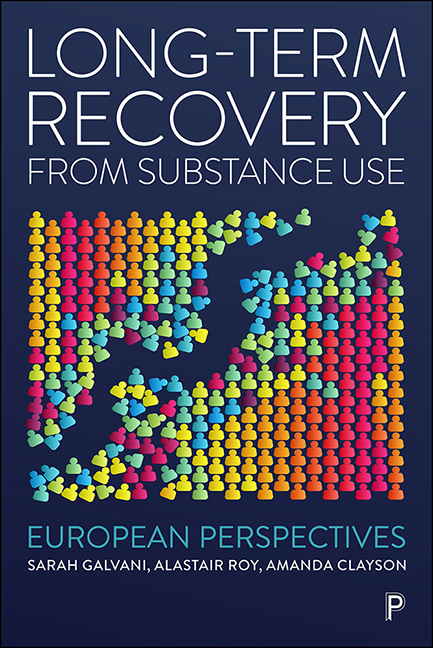6 - Women’s and men’s stories about sex and intimate relationships in long-term recovery from problematic drug use
Published online by Cambridge University Press: 15 September 2022
Summary
Introduction
‘I think that I associate sex with that dirty, strange world. That it's something you did then and there. For me it is connected with drug use.’ (Ulla)
These words belong to Ulla, who, after many years of problematic drug use, lives an ‘ordinary’ life without drugs. They illustrate how the transition from the subcultural drug context into life in mainstream society can be complex with regard to sex and intimate relationships.
A large body of research has highlighted the role of personal relationships in recovery (see Biernacki, 1986; McIntosh and McKeganey, 2001). However, despite the fact that sexuality is a core aspect of being human, scant attention has been paid to how sexual practice is experienced and played out in the lives of recovering users. Drawing from accounts of people who, like Ulla, have left drug use behind, this chapter aims to deepen our understanding of sexuality throughout the recovery process. Some preliminary implications for how sexuality can be addressed in drug treatment are also discussed.
This chapter is based on a qualitative study, conducted in Sweden, of sexuality, intimate relationships and drugs in the context of long-term recovery from problematic drug use. The overarching long-term goal for Sweden's drug policy is ‘a drug-free society’ (Government Office of Sweden, n.d.), and all handling of illicit drugs, including own use, is criminalised. Drug treatment is free of charge for the client and includes various forms of psychosocial treatment, often based around 12-step models, as well as opioid substitution treatment (OST). Although poly-drug use is common in Sweden, amphetamine is the dominant stimulant used, and heroin is the most used opioid.
The study: data and analytic framework
A total of 35 individuals (19 men and 16 women) were interviewed, constituting a varied sample in terms of experiences of drug use as well as general life circumstances. The participants were aged between 21 and 63 years old, and their time period of problematic drug use ranged from three to 37 years, most of them having used drugs for more than eight years. Twenty-two of the participants had used amphetamine or other stimulants as their main drug, while 13 had primarily used heroin. The time span that had elapsed since their last previous drug use varied between 1.5 to 13 years.
- Type
- Chapter
- Information
- Long-Term Recovery from Substance UseEuropean Perspectives, pp. 67 - 79Publisher: Bristol University PressPrint publication year: 2022

